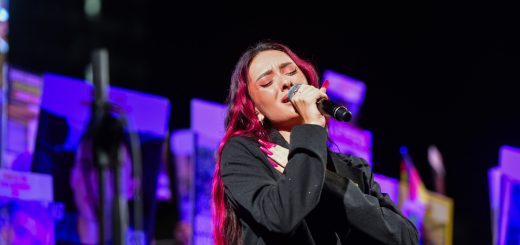BBC Chief Tim Davie Breaks Silence on Israel Eurovision Row: “It’s Not About Politics”

The BBC’s Director General, Tim Davie, has finally addressed the growing storm surrounding Israel’s potential participation in the Eurovision Song Contest 2026, insisting the show “has never been about politics” but admitting he is “aware of the concerns.”
Speaking before the UK Parliament’s Public Accounts Committee on Monday, Davie struck a diplomatic tone — balancing the BBC’s global standing with the political pressure mounting from across Europe.
“Eurovision has never been about politics. It should be a celebration of music and culture that brings people together,” he told MPs. “We are working with the EBU to see what decision will be made.”
Davie, who also sits on the executive board of the European Broadcasting Union (EBU), said the BBC was supporting the organisation’s ongoing consultations with broadcasters — including those in Ireland, the Netherlands, Slovenia, Iceland, and Spain, all of whom have threatened to boycott the show if Israel is allowed to compete amid accusations of genocide in Gaza.
“We’re very aware of the concerns,” Davie said. “It’s obviously a well-debated and difficult topic… but for now, we support the EBU’s process. They must be given the space to reach a fair conclusion.”
A Contest at a Crossroads
The EBU will make its final ruling in December, after a wave of national broadcasters — most recently RTÉ (Ireland), AVROTROS (Netherlands), RTVSLO (Slovenia), and RÚV (Iceland) — declared they would not participate if Israel remains in the competition.
Now, Spain’s public broadcaster RTVE is set to vote on whether to join the boycott, following pressure from Culture Minister Ernest Urtasun and Prime Minister Pedro Sánchez, who last week accused Israel of genocide and imposed an arms embargo.
If Spain pulls out, it would mark the first time a Big Five nation conditions its participation on another country’s exclusion — a dramatic move that could shake Eurovision’s financial backbone.
“Keep Politics Out of Pop”? Easier Said Than Done
Eurovision has long struggled to keep politics off its glittering stage.
From Ukraine’s “1944”, which referenced Soviet ethnic cleansing, to Iceland’s Palestinian flags in Tel Aviv and Madonna’s dancers bearing both Israeli and Palestinian flags, the contest’s “no-politics” rule has been tested time and again.
This year, tensions have intensified following Israel’s near-win in Basel, where YouTube campaigns allegedly funded by the Israeli government urged viewers across Europe to “vote Israel”.
For critics, it crossed a line — politicising the vote and undermining Eurovision’s apolitical spirit.
The UK’s Dilemma
So far, the BBC has refrained from taking a political stance. But with public pressure mounting and Green Party leaders across the UK calling for a boycott, Davie faces a delicate balancing act: defend the BBC’s impartiality while acknowledging moral outrage.
Germany and Italy have reportedly expressed concern that excluding Israel without “clear legal grounds” could set a precedent — and risk fracturing the EBU itself.
Still, Davie insists the focus must remain on unity:
“It’s really important we preserve the celebratory element of Eurovision,” he said. “At this stage, we’re backing the EBU’s work — and they need to get on with it.”
Source: BBC


